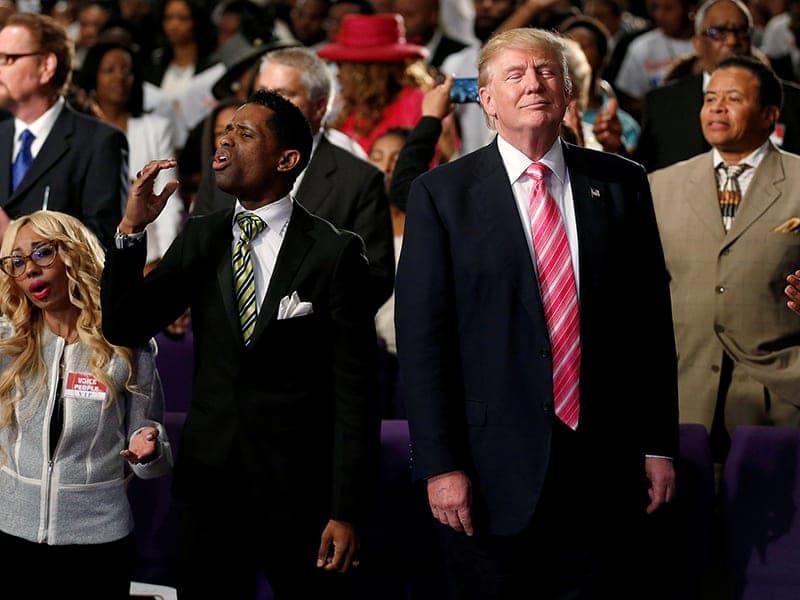The centerpiece of President Trump’s religious freedom agenda, and the carrot he often dangled in front of Christian leaders as he sought their support during the campaign, was a pledge to overturn a 1954 law that says houses of worship can lose their tax-exempt status if they engage in partisan campaigning.
But a new survey of evangelical leaders — mainly pastors whose flocks were crucial to Trump’s victory in November — shows that close to 90 percent of those asked opposed the idea of clergy endorsing politicians from the pulpit.
“Evangelicals emphasize evangelism, and pastors often avoid controversies that might take priority over the gospel message,” said Leith Anderson, president of the National Association of Evangelicals, the organization that polled the 112 leaders in February.
“Most pastors I know don’t want to endorse politicians. They want to focus on teaching the Bible,” Anderson said.
“Our focus should be on the gospel,” George O. Wood, general superintendent of Assemblies of God, said in a statement released by the NAE. “If we begin to endorse candidates, then we are politicizing the church, diluting our message, and bringing unnecessary division among our people. It is sufficient that we can speak on issues without endorsing specific candidates for office.”
The Evangelical Leaders Survey showed that 89 percent said pastors should not endorse candidates from the pulpit. Some, however, said that the government should not penalize pastors who do endorse.
The survey is a monthly poll of the board of directors of the National Association of Evangelicals. The members include the CEOs of denominations and representatives of an array of evangelical organizations, including missions, universities, publishers, and churches.
The survey suggests that evangelical leaders have stronger feelings on the issue than the population at large. According to a LifeWay Research poll conducted last year, 8 in 10 Americans (79 percent) said it is inappropriate for pastors to endorse a political candidate during a church service.
As both a candidate and then in the first weeks of his presidency, Trump vowed to – as he put it at the National Prayer Breakfast last month — “get rid of, totally destroy” the 1954 law, the so-called Johnson Amendment.
The law had never been a major agenda item for Christian conservatives. But white evangelicals embraced Trump’s candidacy for a variety of reasons and voted for him in record numbers — 8 in 10 told pollsters they cast their ballot for the Republican nominee — and effectively propelled him to victory.
Now that Trump is in office the issue seems to have faded from his agenda, perhaps in part because overturning the law may be more complicated and less effective than Trump seemed to believe.












